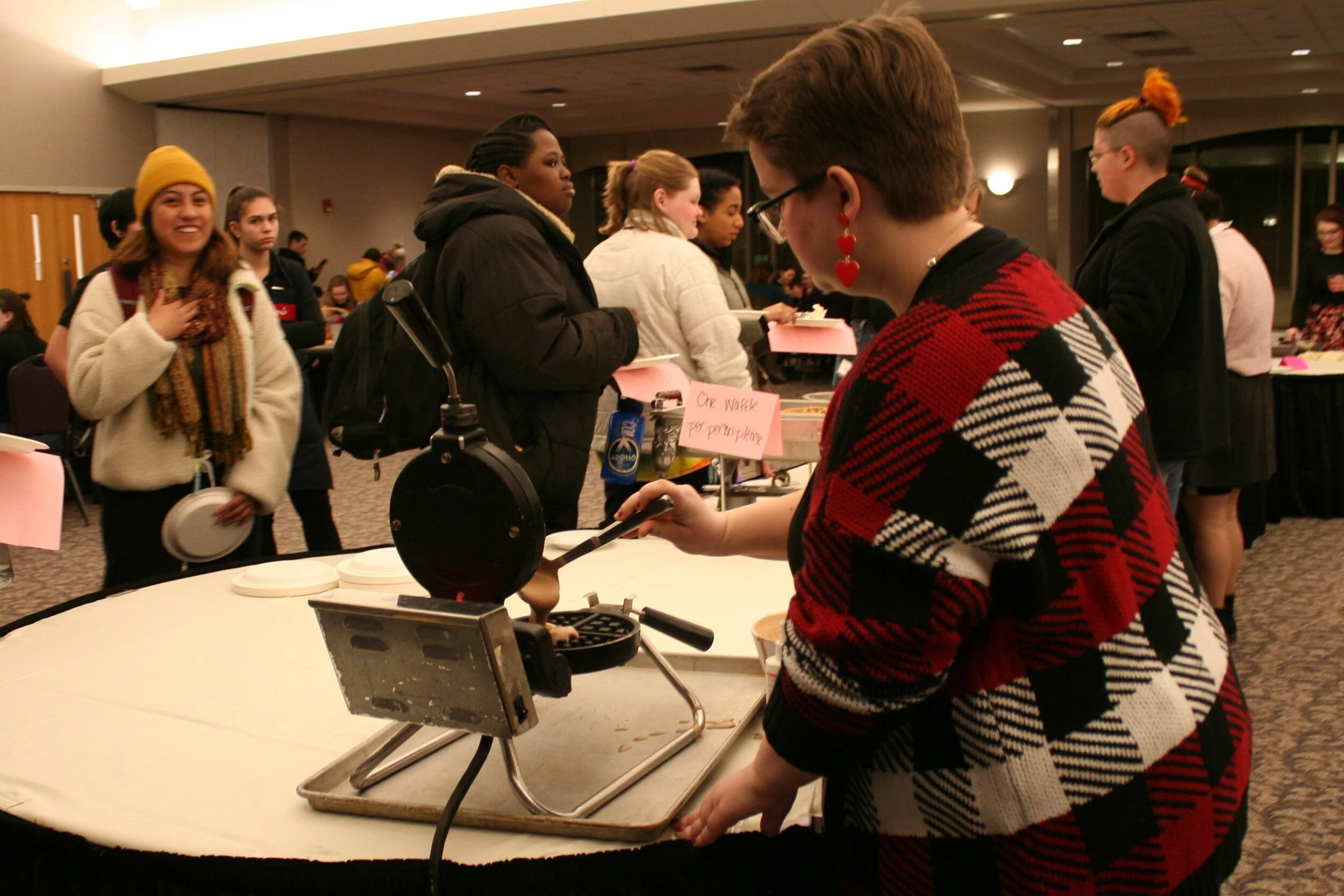Challenging criminalization
Dr. Nancy Heitzeg on Angela Davis and the Importance of Prison Abolitionism, Post-George Floyd
On Thursday, February 25, St. Kate’s hosted renowned author and political activist Angela Davis for a conversation about her work, Are Prisons Obsolete?, during the university’s yearly Core Convocation. The Core Convocation works in tandem with the St. Kate Library’s “One Read” program, where everyone in the community reads the same book and comes together to discuss it — much like a giant book club. For the past three years, the One Read programs and their accompanying Core Convocations have been part of Dr. Nancy Heitzeg’s “Challenging Criminalization” series. I spoke with Dr. Heitzeg about the purpose behind the series and her experience being on a panel with Angela Davis.
As the Endowed Chair of the Sciences from 2018 to 2021, Dr. Heitzeg has dedicated her position toward getting others to question the role of policing in our society.
“I want people to interrogate the assumptions they have about who is considered a ‘criminal’,” she explained. “These assumptions are of no fault of our own. There is a media propaganda machine that centers the fear of criminals and equates people of color to criminals. The narrative protects the police. I wanted people to challenge these assumptions and ask themselves, ‘Is policing and punishment always necessary?’”
Dr. Heitzeg’s three-year “Challenging Criminalization Beyond Policing and Punishment” series does exactly that. In the first year, the series had a photo exhibit in the library titled “We Are All Criminals,” which featured photos and poetry that explored the idea that while one in four people in the U.S. has a criminal record, four in four have a criminal history. The next year, Sister Helen Prejean, a leading advocate for the abolition of the death penalty, spoke on campus about extra-judicial police killings and capital punishment. For the series’ third and final year, Dr. Heitzeg wanted to focus on prison abolition, concentrating on Angela Davis’ work Are Prison’s Obsolete?.
The Core Convocation on Angela Davis is especially timely given the past year’s events. After the murder of George Floyd in 2020, the Black Lives Matter movement saw a huge resurgence in popularity. The summer following Floyd’s murder saw civil unrest and protests against police brutality. The constant questioning of the role that police had in our society filled the air. In other words — this was what Dr. Heitzeg’s exhibit hoped to achieve. I asked Dr. Heitzeg about the timeliness of her event with Angela Davis and if it was something she’d planned all along, or only after the murder of George Floyd.
“We planned it from the beginning,” Dr. Heitzeg said. “We always wanted to end the series with Angela Davis, and to have her in February because of Black History Month. No one could’ve predicted the murder of George Floyd and the discussions on abolition and defunding the police that followed.”
“There have always been abolitionists,” Dr. Heitzeg added.
Certainly, from Eugene V. Debs to the Black Power Movement in the 60s and 70s, prison abolitionism is not a new concept. However, Dr. Heitzeg mentioned that the 21st century has seen an expansion in the abolition conversation, especially in light of the Black Lives Matter movement and the renewed attention on police killings, such as the killings of Ahmaud Arbery and Breonna Taylor.
Throughout her time studying abolitionism, Dr. Heitzeg has seen plenty of change.
“I’ve seen it get worse,” she admitted, “with the prison industrial complex and its overrepresentation of people of color and poor people. We’ve also seen a big expansion of the number of women in prisons.”
On a more positive note, she pointed out the resurgence in social movements against prisons and policing in the past ten years.
“The Black Lives Matter movement is finishing the unfinished business of the Civil Rights movement of the 50s and 60s,” she praised.
Angela Davis could not have come to campus at a more relevant time. With the politically charged climate surrounding policing since the murder of George Floyd, her work grew increasingly popular in 2020. Are Prisons Obsolete?, the centerfold of the One Reads program and the focus of the Core Convocation, has been hailed as essential theory for abolitionists. In fact, the Core Convocation at St. Kate’s was incredibly popular, with people from over ten countries — from Brazil to Australia to Germany — hopping on Zoom to see her speak.
The conversation around alternatives to policing and the prison system does not end with Davis’ talk. I asked Dr. Heitzeg what people interested in prison abolitionism could do to learn more about it. She recommended the book We Do This Til We Free Us: Abolitionist Organizing and Transforming Justice by Mariame Kaba as a good overview of abolitionist thinking. As for websites, she recommended Critical Resistance -- an abolitionist toolkit with an endless array of resources — and Transform Harm with resources for understanding what transformative justice would look like. Dr. Heitzeg stressed the importance of getting involved locally in projects like the Women’s Prison Book Project, or movements such as Reclaim the Block, Black Visions Collective, and MPD150.
“These are all local groups that are doing a lot to raise awareness and push for concrete policies,” she said.
Finally, Dr. Heitzeg told me that we have to talk to people we know about the issues we care about.
“Discuss it with friends and family,” she said. “Real social change requires a lot of people being brought along.”
Indeed, we must transform our silence into language and action in order to truly change the narrative and incite change.






